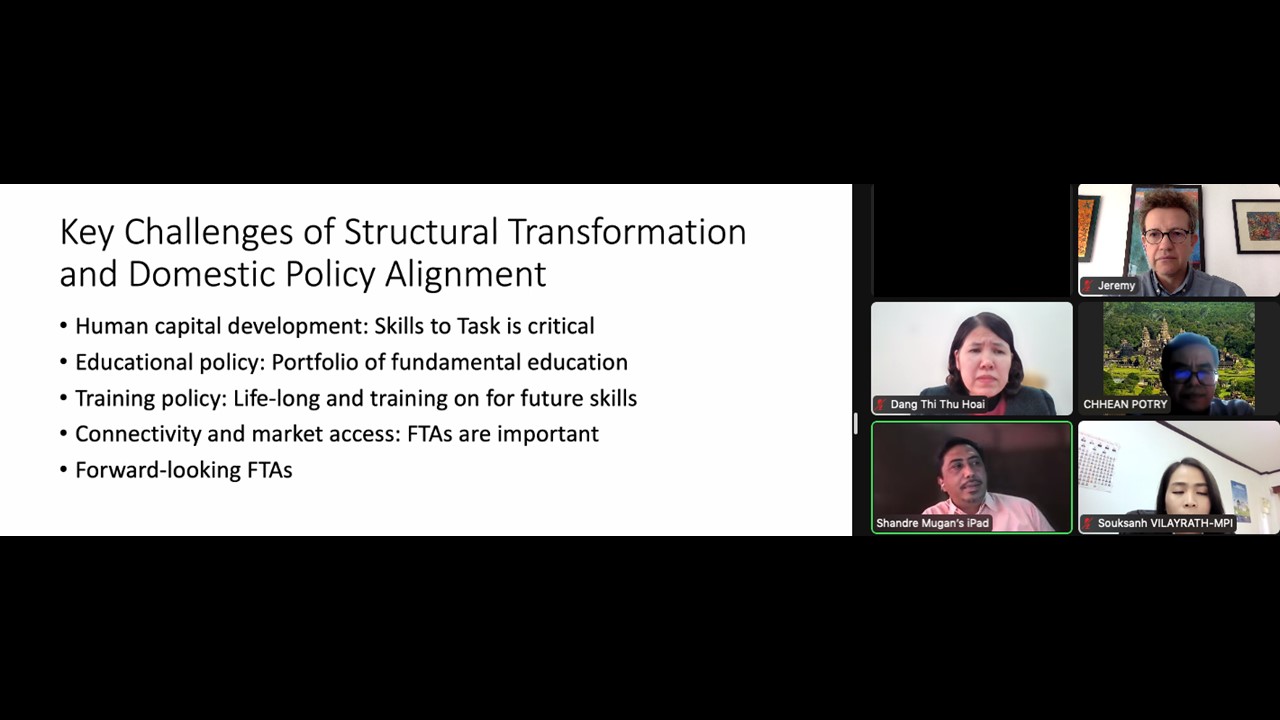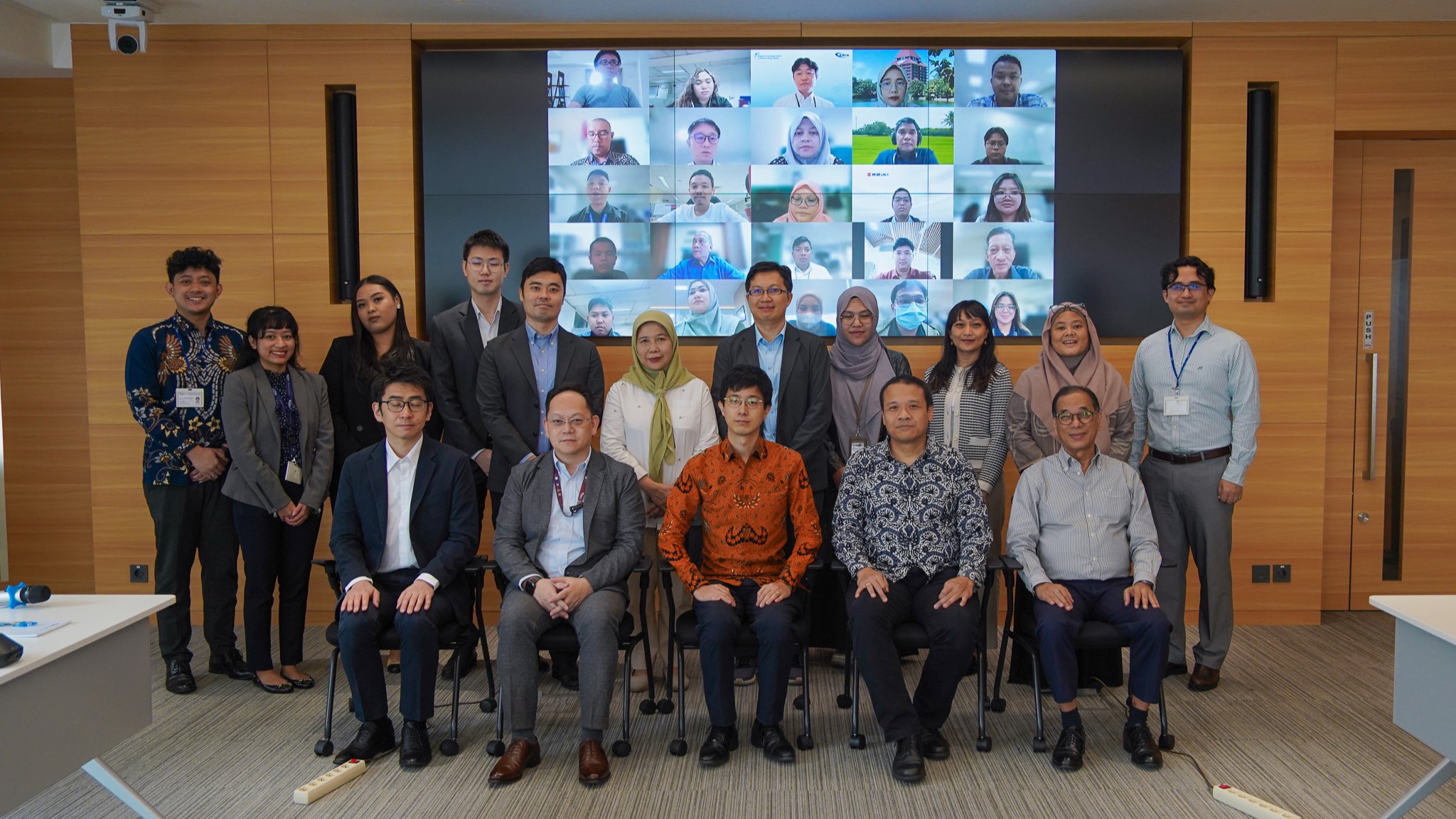Promoting Global Production Value Chain Structural Transformation
Date:
15 February 2022Category:
NewsTopics:
Capacity Building, Development, TradeShare Article:
Print Article:
Jakarta, 15 February 2022: The global value chain (GVC) network fosters regional economic transformation, effecting both supply and demand in the manufacturing and services industries. Regarding skills development, the structural transformation of GVCs in ASEAN relies on the unbundling of manufacturing and services activities (due to telecommunication and information technologies) and the importance of urban amenities to retain skilled labour in key cities to drive economic growth. Although this transformation creates new economic opportunities, it might induce greater disparity unless policies are aligned between ASEAN Member States.
On 15 February, ERIA’s Capacity Building Programme hosted a workshop to discuss these issues, following a 1.5 day research workshop on ERIA’s on-going study, Cities, Urban Amenities, and Global Production Value Chain Structural Transformation, Trade, and Services Liberalization in ASEAN and East Asia. This workshop discussed the new growth path in terms of structural transformation in response to emerging GVCs, services sector development, and their links to city and urban sector developments. It aimed to introduce government officials to new growth policies and strategies for ASEAN’s sustainable growth.
Prof Shandre Thangavelu, of the University of Adelaide’s Institute of International Trade and the Jeffrey Cheah Institute of Southeast Asia, Sunway University, led the workshop for 5 officials from Cambodia, Lao PDR and Viet Nam. The workshop presented critical aspects of city-to- city linkages and GVC’s as drivers of economic growth, policy formulation around labour skills, agglomeration of cities, and manufacturing and services industries. Mr Jeremy Gross, ERIA Capacity Building Director, moderated this session followed by questions and answers.
Following the workshop, one participant noted that the workshop discussions will be useful for her policy research and formulation to enhance her country’s industry competitiveness; another how the ideas discussed were important as his country prepares an automative and electronic sectoral roadmap.







